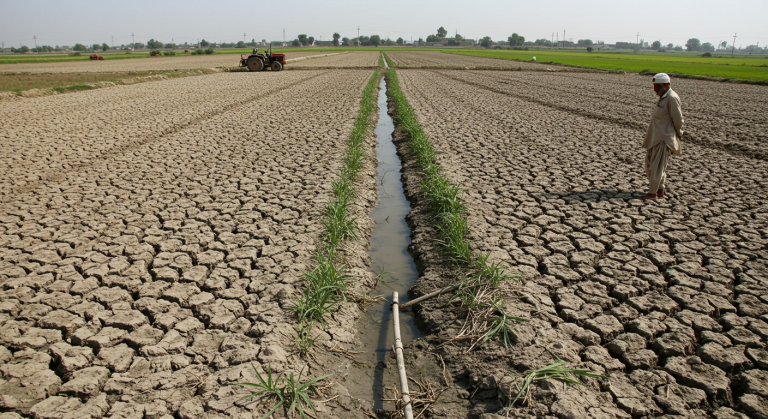Saudi Arabia Issues New Mandatory Guidelines for Cafés and Restaurants: Full Nutritional Transparency Now Required

Saudi Arabia has rolled out a new set of compulsory guidelines for cafés and restaurants, which will officially come into force on July 1, 2025. These measures are part of the government’s efforts to promote transparency and healthier eating habits. These changes, announced by the Saudi Food and Drug Authority (SFDA), are designed to enhance public health awareness by enforcing full transparency regarding food ingredients and nutritional content.
This initiative is part of the country’s broader vision to encourage healthier lifestyle choices and elevate the overall quality of life in the Kingdom, in alignment with Saudi Vision 2030 goals.
What the New Regulations Require:
Under the new rules, all food service establishments — including cafés, dine-in restaurants, and even cloud kitchens — must provide complete nutritional information for every food and beverage item they offer. These requirements apply to both physical (paper) menus and digital platforms, including websites and mobile food delivery apps such as HungerStation, Jahez, and Mrsool.
- Each item on the menu must now include:
- Calorie count per serving
- Fat, sugar, and sodium content
- Allergen warnings (e.g., nuts, dairy, gluten)
- Caffeine content for beverages
. Food establishments must now include a clearly visible icon resembling a salt shaker beside any dish that contains high sodium levels, making it easier for diners to identify salty items at a glance.
. Estimated time or physical activity required to burn off the calories of each item
This is a significant shift from previous standards where only calorie information was optional or inconsistently provided by some outlets. The goal is to allow customers to make more informed, health-conscious decisions when dining out or ordering food online.
Health First: Encouraging Informed Choices
According to an official report by the Saudi Press Agency (SPA), this policy is intended to promote transparency and public awareness about nutritional health. The SFDA emphasized that many health issues in the country, including obesity, diabetes, and heart disease, can be linked to unregulated consumption of high-calorie and high-sodium foods.
By providing full disclosure of ingredients and nutritional values, authorities hope to shift the culture from taste-based decision-making to informed eating habits.
An SFDA spokesperson stated:
“This regulation is about more than food labels — it’s about empowering the public to make better dietary choices, understanding what they consume, and ultimately improving national health outcomes.”
What Restaurants and Cafes Need to Do
From July 1, every food outlet must:
- Update menus to include required nutritional information.
2. Additionally, restaurants are expected to train their staff to provide accurate information about the ingredients used in their menu items, particularly focusing on potential allergens that could pose health risks.
3. Ensure their online presence — including on third-party delivery apps — displays the same information as their physical menus.
4. Label high-sodium items with a salt icon for immediate visual warning.
5. It is also now mandatory to clearly mention the caffeine content in beverages such as tea, coffee, and energy drinks, allowing consumers to make informed choices based on their dietary preferences or restrictions.
6. Include a basic estimate of how long it would take to burn the calories from that dish — for example, “25 minutes of walking required to burn this item.”
Businesses failing to comply may face fines, temporary suspension, or even license revocation if they continuously violate the policy.
Public Reactions and Expert Opinions
The announcement has triggered a diverse range of public responses. Health professionals and nutritionists have largely welcomed the decision, calling it a major step toward curbing the rising tide of diet-related illnesses in the Gulf region.
Dr. Rana Al-Mutairi, a Riyadh-based dietitian, commented:
“This is exactly the kind of regulation we need. People often don’t realize how much salt or sugar they’re consuming. When the information is right in front of them, it leads to healthier choices.”
On the other hand, some small restaurant owners are concerned about the short timeframe to implement changes. They’ve requested more support from local authorities in calculating nutritional data and updating digital systems.
Additional Government Update: Residency Rules for Domestic Workers
In a separate development, Saudi Arabia’s Directorate General of Passports (Jawazat) has issued an important clarification regarding the renewal of residence permits (Iqama) for domestic workers.
According to Jawazat, the Iqama for household workers — such as housemaids, drivers, and nannies — can now only be renewed when less than 14 months are left on their current permit. This clarification was issued after a resident asked whether a renewal was possible with 6 months remaining. The department responded via its official “X” (formerly Twitter) account, confirming that renewal is only permitted when the existing Iqama has fewer than 14 months left before expiry.
This step is part of efforts to regulate and streamline immigration procedures, avoiding early renewals and overburdening the system.
Conclusion
With these new food transparency rules and updated immigration guidelines, Saudi Arabia continues to demonstrate its commitment to improving the health, safety, and administrative clarity for both citizens and residents. These measures not only align with global best practices but also reinforce the Kingdom’s dedication to long-term social reforms under its national Vision 2030 roadmap.
As of July 1, food outlets must meet new compliance standards or face penalties. Consumers, meanwhile, can expect a more informed and transparent dining experience wherever they choose to eat across the Kingdom.

